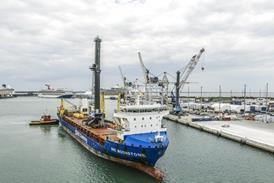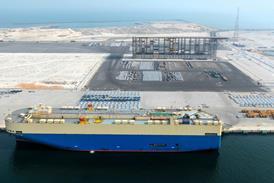Kim Yeon-tae, executive director of the Korean Register is unequivocal when he states that the chances of postponing the Sulphur Cap 2020, "are very, very small".
Implementation of the Sulphur Cap 2020 and the Ballast Water Management Convention (BWMC) have dominated international maritime industry debate over the last few years.
The parlous state of the global shipping industry at present has seen many calling for the postponement of their implementation, given the substantial capital expenses required to meet both conventions.
Whilst a two-year postponement of the implementation of the Ballast Water Management System (BWMS) was agreed at the 71st Marine Environment Protection Committee (MEPC 71) in July 2017, Kim gives various reasons why there is unlikely to be a similar postponement of the Sulphur Cap 2020, even though it is evident that the relevant parties are far from being fully prepared.
Kim says that it will make no difference that the IMO regulations, which are relevant to the convention, in terms of how to apply and implement the convention, have still not been finalised; nor that the majority of shipping companies are still undecided on what measures they will be taking, to comply with the convention.
Responding to comments that oil refineries are not expected to be able to produce a sufficient amount of low sulphur fuel oil (LSFO) for ships by 2020, Kim points to the fact that if LSFO is not available at the place of bunkering, under MARPOL Annex IV/18.2, the ship is simply allowed to be exempt from compliance with the Sulphur Cap 2020 regulation. This means that a shortage of LSFO will not be a legitimate excuse for postponement of the sulphur cap implementation.
He adds that whilst some ships will be fitted with an exhaust gas cleaning system (EGCS) to comply with the Sulphur Cap 2020, the availability of these systems may not fully meet the demand before the 2020. In such cases, a ship will be allowed to use LSFO until it is equipped with an EGCS.
Kim also notes that at the last two IMO meetings, several member states highlighted their concerns regarding the difficulty of adhering to the global sulphur cap, but they were excluded from discussions.
"It's likely to be difficult for IMO member states to re-submit the same proposal in future committee meetings," Kim states.
He concludes that if the implementation of Sulphur Cap 2020 is postponed once again after the BWMC, IMO will lose public confidence and face a significant obstacle to the smooth implementation of any future conventions.
"In reality, the chances of postponing the Sulphur Cap 2020, are very, very small," he says.

















